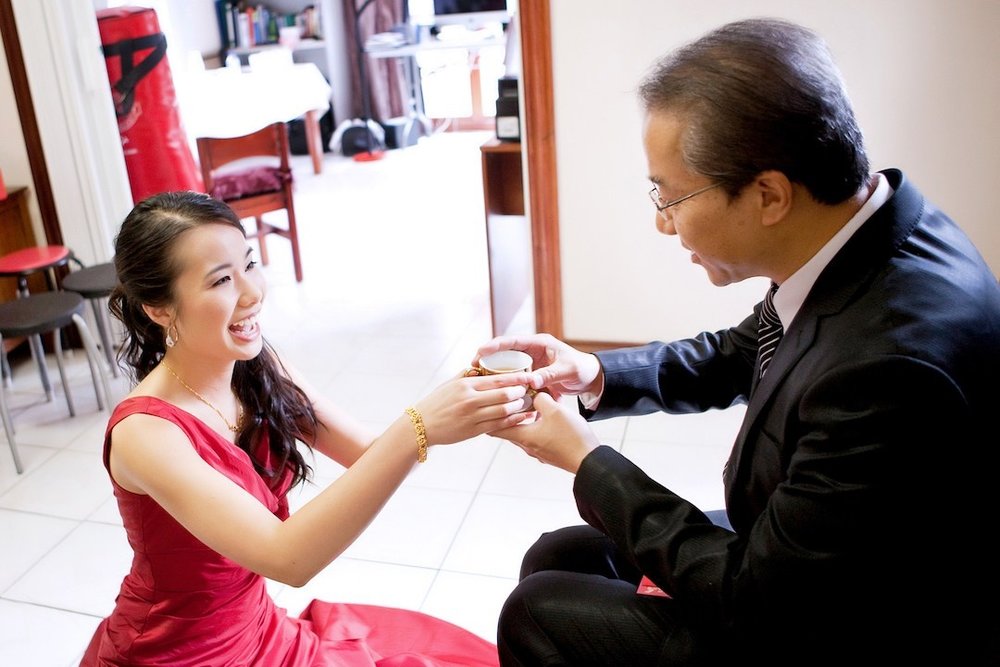“You’re not allowed to sleep until you finish your maths!”
My pencil grip tightened as Dad’s stern voice echoed throughout the house. I looked up at the clock and rubbed my tired eyes. It was 11:00pm, way past my bedtime.
“How many times do I have to teach you? Hurry up!”
I began to tap my pencil on my wad of perforated paper, hoping that if I stared at the white space long enough, the answers would magically appear. As a child I had always believed in magic. I was a dreamer, drawn to the impossible.

That afternoon, my teacher had announced the names of students who would be receiving awards at Presentation Night. I had been chosen for the Choir Award, a creative medal that was given to only one student in the whole school. As the classroom erupted with applause, I pocketed the invitation with tenderness, not wanting to put a crease on the feeling of knowing that someone was proud of me. I had been so distracted by the euphoria of this award, that I had forgotten to touch my maths homework.
“Hurry up! What’s wrong with you?!”
In frustration, my dad stormed upstairs, leaving me to figure out the solutions on my own. I looked up at the kitchen clock and continued tapping my pencil to the beat of every futile second.
Tap. Tap. Tap.
What’s the point of maths? Why does it have to be so black and white? Why did I have to be that Chinese kid who was hopeless at the one thing we’re meant to be good at?
Tap. Tap. Tap.
11.15pm. Still nothing. My sheet of paper remained as blank as my mind. I longed to fill the bland white space with doodles, color and music.
Tap. Tap. Tap.
11.30pm. I put down my pencil and tiptoed to the bottom of the staircase that led to my bedroom. Was I really going to disobey my dad? In an act of defiance, I began to make my way up the stairs. Every creak made my heart jump, but I managed to sneak into the bathroom unnoticed and began to brush my teeth.
“Did you finish your maths?”
My shoulders stiffened, and I froze in fear with my toothbrush hanging comically out of mouth. As an eleven-year-old, all I ever wanted to do was to make my dad happy. Everything I tried to do was for him. I wanted to make him proud. Tonight, I had failed him. As I caught my dad’s weary reflection in the bathroom mirror, hot tears began to roll down my cheeks. His life has been hard enough, and I was only making it worse.
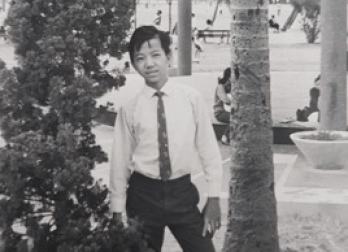
Dad was born into a single-parent family in the 1950s. His mother had lost everything during the Chinese civil war and had escaped to Hong Kong as a refugee. Stuck in a foreign country and without any help from family or friends, my grandmother sought refuge in the arms of a husband, my grandfather. I never met the man. He abandoned his family after my father was born, returning only on occasion to steal hard-earned dollars from the woman he promised to love.
Growing up, my dad was often bullied for his short and scrawny frame, which was supported by a daily diet of rice mixed with pig fat. Dad always looked forward to his birthday because it was the one day a year his mother would bring home chicken for dinner. The chook would be skin and bones, but also a grand gesture of sacrificial, motherly love.
There was a year when his mother failed to keep up the birthday tradition. My dad was walking home from school and discovered a large crowd gathered in the middle of the street. As he edged closer with child-like curiosity, he discovered that his mother had been struck by a passing car. While she survived the accident, her injuries impaired her ability to work. My dad was forced to drop out of school because his mother needed his hands and feet to help pay the bills.
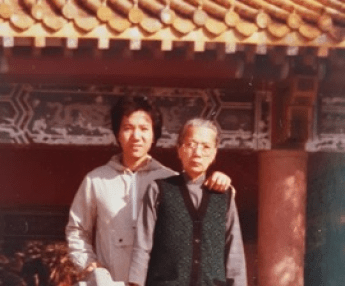
I had grown up hearing these stories of courage and heroism, and here I was, unable to overcome long division. I crawled into bed and longed for my mattress to swallow me up. As I filled my pillow with tears of shame, I heard gentle footsteps enter my bedroom.
“Don’t cry. I have something for you.”
I crawled out from under the covers in surprise and looked up at my dad with red, puffy eyes. He was holding a white box, his slumped shoulders appeared remorseful. As I received the gift, Dad quickly disappeared back to his bedroom and left me to unwrap the present alone.
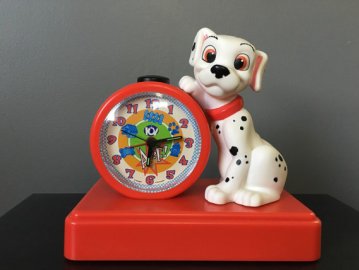
It was a barking ‘101 Dalmatians’ alarm clock, designed by Disney. Was this really for me? When did Dad have time to buy this? Does this mean Dad loves me? I adjusted the hands of the clock and placed it next to my Choir Award invitation. I stared into the Dalmatian’s laughing, reassuring eyes and savored the seconds.
Tick. Tick. Tick.
I fell asleep that night, surrounded by treasure, feeling prized.
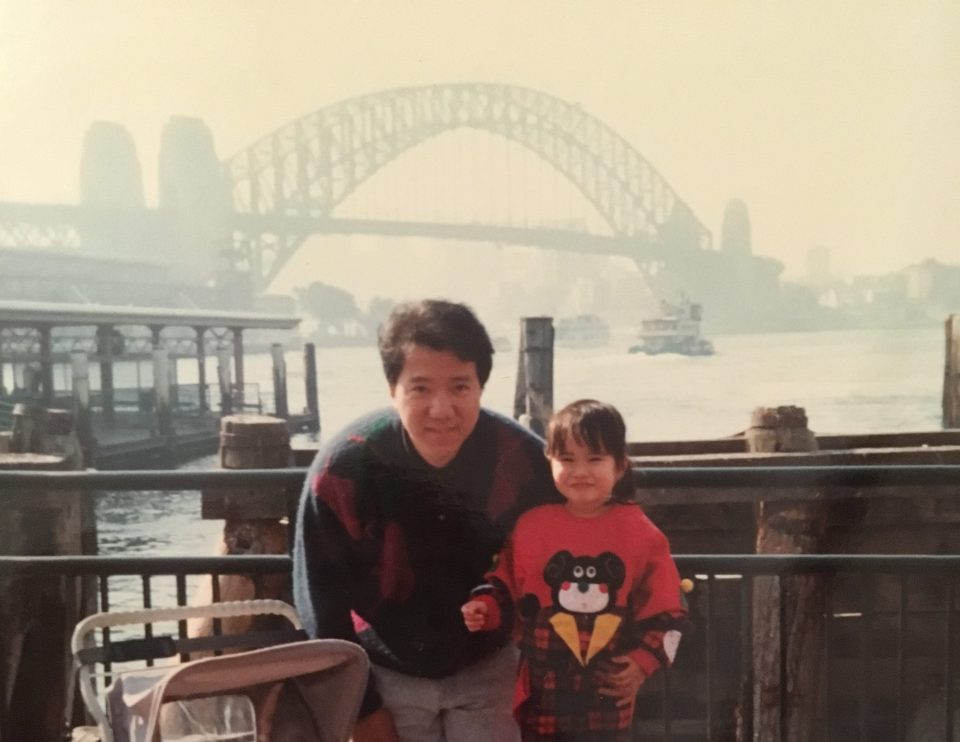
Growing up, my dad and I saw the world very differently. Coming from two different generations and cultures, we would clash for many years to come. As I became a teenager, our relationship became a battleground between Eastern and Western values. He would fail to meet my expectations of a loving father, and I would fail to meet his expectations of a respectful daughter. While I longed for love to be expressed through the Western form of affection and affirmation, Dad expressed love through his Eastern lens of provision and sacrifice.
As a migrant without an education, my dad had to learn English while juggling three jobs. He was a mailman before dawn, a factory worker during the day, and a waiter in a Chinese restaurant at night. He wanted to secure for me the education he never had. Without Dad, I wouldn’t even have the opportunity to put my dreams into writing. I kept my barking alarm clock well into adulthood, to remind myself that despite our differences, Dad loved me in the only way that he knew how.
“Dad, I’m getting married.”
My dad looked at me incredulously as though I had lost my mind. I was only twenty-two years old, earning a graduate’s wage and engaged to a pastor-in-training. Young and dumb. What would I know about love?
“He is still studying at bible college. He doesn’t have a job yet! Is love going to put food on the table?”
Dad was exasperated with worry, but I stood my ground. I had recently put my faith in Jesus who had died to reconcile me to my Heavenly Father. Although I grew up with an earthly dad who measured my worth by my performance, my Heavenly Father showed me that I am worthy apart from works and loved in spite of my mistakes. I had been saved not because I am loveable, but because Love is who God is. This freed me to give and receive love, even when undeserved.
Knowing that my time in Dad’s household was coming to an end, I invited him to join me for breakfast every Saturday. It was my last chance to enjoy quality time with a man I barely knew. To my surprise, my dad agreed to breakfast and so much more because he wanted to know the reason for my faith. At the very same table where Dad once taught me maths, I began teaching him the words of Jesus. Week after week, like eager children in the sand pit, Dad and I dug deep into the pages of the Bible.
Over time, God’s words began to close the cultural gap that had once wedged us apart. Our relationship was no longer strained by East versus West, instead we started to express love to one another in God’s way: with humility, compassion and forgiveness. Dad learned to say, “I love you” and “I’m sorry”, and I learned to listen and to forgive.
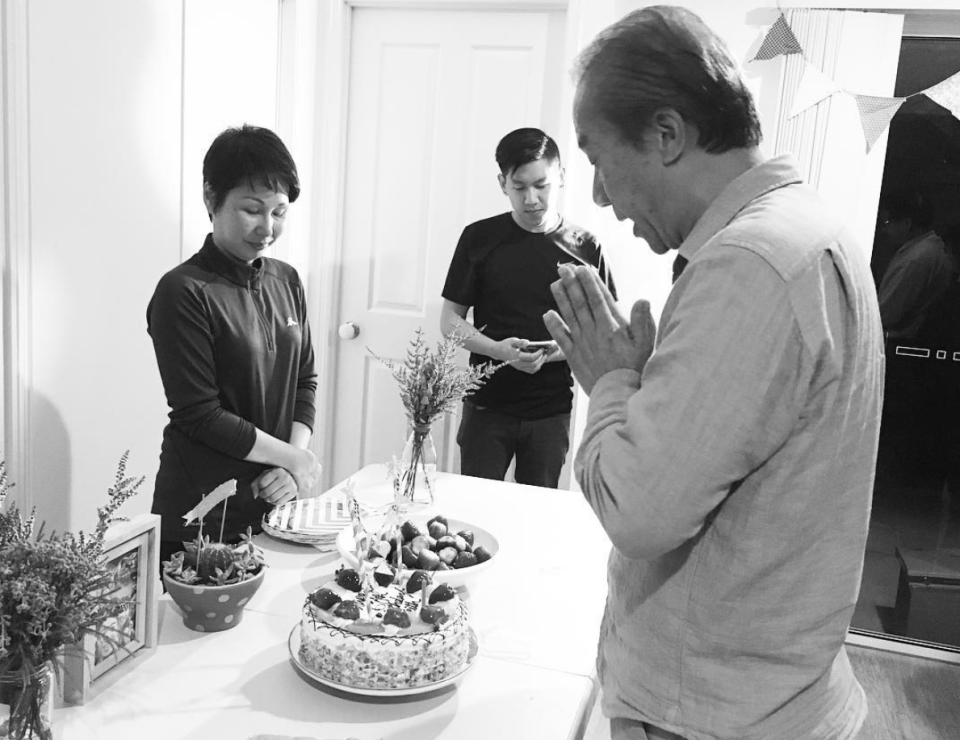
By the time Dad walked me down the aisle, I was confident that he was in a relationship with the Father who would never abandon. Unlike his earthly dad who showed up only to steal, this one promised to love, care and provide for him into eternity. After decades of worry and insomnia, my dad finally found rest.
I’m turning thirty this year, but I’ll always be a dreamer. I dream of a day when my wounds will be healed, relationships will be restored, and every tear wiped away. I dream of a day when the foreigner and the fatherless will finally belong. I dream of the day when I’ll forget that I ever clung to a barking alarm clock for love and validation, because on that day, my Heavenly Father the Author of Time, will have finally welcomed me home.
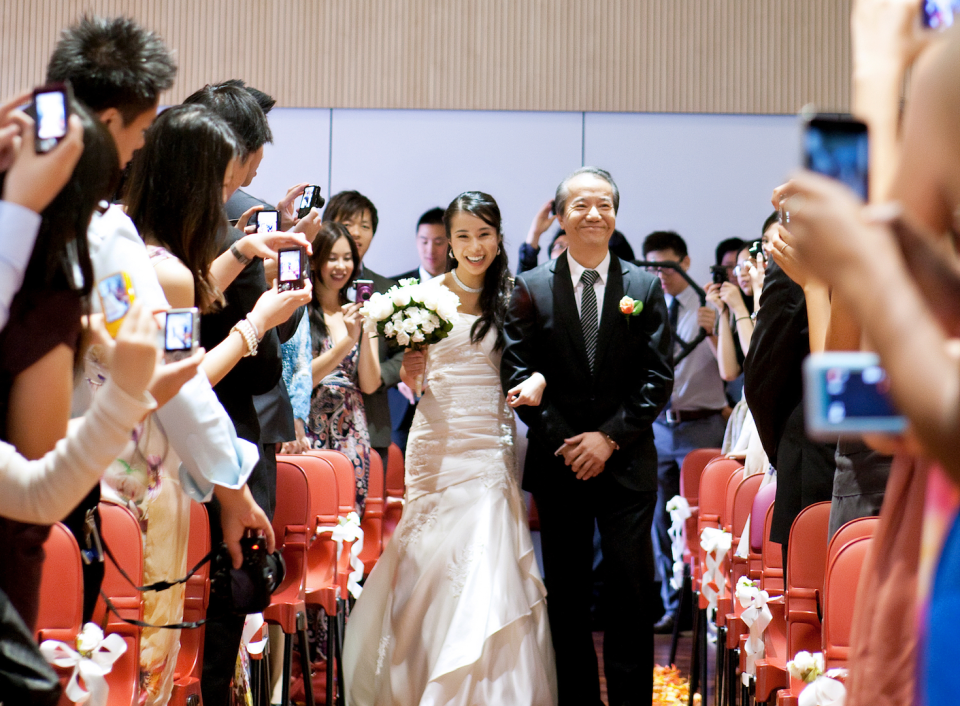
‘Closing The Cultural Gap’, first published in the 2018 ‘Stories of Life’ anthology.
Read ‘Closing the Cultural Gap’ in Chinese.

